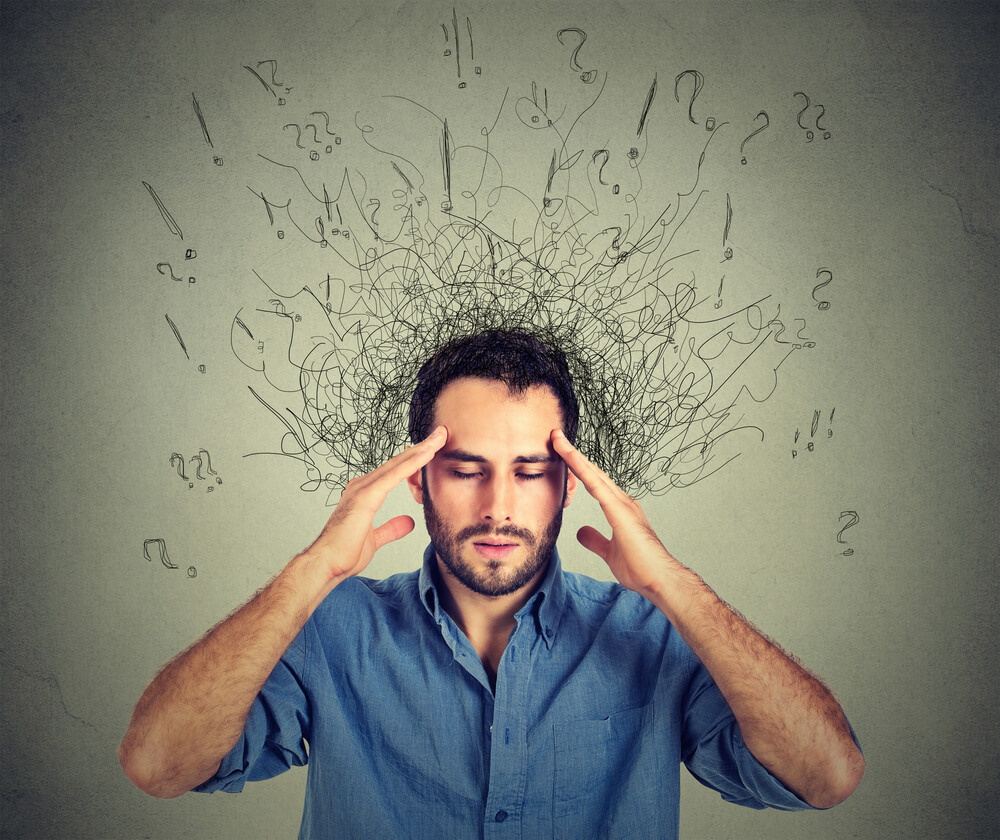If you went to the store over the past few days, you likely noticed entire sections in which the shelves were completely bare. With the spread of COVID-19 causing school closures and event cancellations, people across the country are focused on keeping themselves and others as healthy as possible. But what about our mental health? How do we find a balance between being concerned about this pandemic, without letting it affect our mental, emotional, and spiritual health?
Dr. Jim Schroeder, a pediatric psychologist, stopped by Morning Air® recently to discuss why people act the way they do in response to a pandemic, and what we can do to stay mentally healthy during this uncertain time.
Dr. Schroeder pointed out that it is this uncertainty that is fueling the thoughts and actions of many during this time of pandemic. He said, “The first thing that we have is that it’s an issue of uncertainty. … Every year we know, sadly, that many people are going to get the flu and, sadly, thousands of people are going to die from it. But we also know that there is a vaccine that has at least some degree of effectiveness towards it. But here we’re dealing with something that’s uncertain. And so the first issue of [pandemic] from the psychology side is the uncertainty piece.”
If you have felt a spike in anxiety and stress as news of this virus unfolds, you’re not alone. In fact, that is a healthy, natural response. Where it can veer into unhealthiness is how we respond to the anxiety. Are you feeding it by gorging yourself with information, or are you focusing on the aspects you can actually control?
“I think it’s important for people to understand that it’s very hardwired into us, this deep-seated intuition, that when you deal with uncertainty it’s an unsafe situation. And so uncertainty naturally leads to anxiety, and it starts to feed a lot of it. I think there’s a piece here honestly that the more we seek out information it actually increases the anxiety and not decreases.”
So what can you do to decrease anxiety? Dr. Schroeder advised, “You have to ask yourself, what can I really control in these situations? And what can I not? And a few things we can control. One is that when you do seek information out about this, make sure you’re seeking out trusted sources. There is so much going around right now, information-wise, that’s really unreliable, and that’s why people are running to the stores and getting tons of toilet paper or other things. We just see that there’s a lot of information out there that’s not a good source. So that’s the first thing.”
“The second thing is to take reasonable health precautions and take reasonable precautions when you know you’re just operating in your normal space,” he continued. “But the third thing, and I will say this is hard and this is where the media plays a significant role and a responsibility, is that we really do need to limit the amount of information that we seek out on this issue. Because oftentimes when we seek out more and more and more information, the natural human psyche is going to get more anxious about it. So I would say go to your sources that you see are reasonable daily, or maybe a couple of times daily. But do not continue to seek out over and over and over amounts of information.”
No matter how this pandemic shakes out, Dr. Schroeder pointed out that the actions and attitude we have today will be what we carry with us into the future. While pandemics don’t come around every day, there are many things in life that will cause fear, anxiety, and uncertainty. Now is a great opportunity to develop the skills to handle them in a healthy way.
“No matter what happens in this situation, I think there’s a whole lot we can do to preserve a much greater psychological health,” Dr. Schroeder acknowledged. “Because at the end of the day, those who do survive, no matter what happens here, are either going to carry on a legacy of fear or they’re going to carry on a legacy of capability. And I don’t think that we want people to carry on a legacy of fear indefinitely.”
Listen to the full conversation below:
Morning Air can be heard weekdays from 6:00 – 9:00 a.m. Eastern/3:00 – 6:00 a.m. Pacific on Relevant Radio® and the Relevant Radio App.


